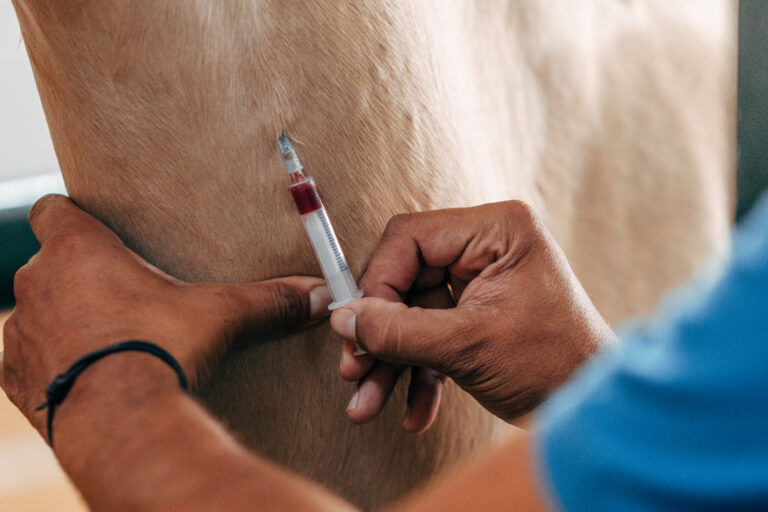 Strangles was diagnosed at a boarding facility in Providence County, Rhode Island. NOTE THAT THIS IS A GENERIC IMAGE AND IS NOT OF A HORSE ON THAT PROPERTY!
Strangles was diagnosed at a boarding facility in Providence County, Rhode Island. NOTE THAT THIS IS A GENERIC IMAGE AND IS NOT OF A HORSE ON THAT PROPERTY!The Equine Disease Communication Center reported that a horse boarding facility in Providence County, Rhode Island, with nearly 50 horses in residence, reported that animals began experiencing mild respiratory disease in mid-September. Signs were mild fever, nasal discharge and cough. There are several attending veterinarians for the stable, and one was consulted. The veterinarian obtained nasopharyngeal samples from three horses and submitted them for a respiratory panel, where Equine Rhinovirus-B was discovered in two horses and Streptococcus equi zooepidemicus in all three.
The farm owner separated the sick horses from well ones until the sick ones were clinically normal for greater than a week (all horses had temperatures monitored twice daily). Upon reintroducing the horses that were formerly showing signs, the well horses began showing similar signs, with some also experiencing lymphadenitis and lymphadenopathy.
To date, approximately 26 horses have experienced some respiratory signs and 21 have not. A second veterinarian examined a single horse with the aforementioned signs. She obtained a nasopharyngeal sample that was qPCR positive for EHV-4 and Streptococcus equi equi. Upon this diagnosis, the state veterinarian issued an order of quarantine.
The owner had been maintaining strict biosecurity prior to the new diagnosis, but two horses left the property to go to another boarding facility in the same town. There was no quarantine in place when the horses were moved. There is no known disease at that second farm, and those horses moved about three weeks prior to the diagnosis of S. equi and EHV-4.








